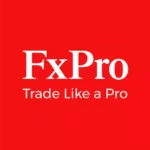The Secret of Forex Rebates: How to Make Your Trading More Profitable?
What is the foreign exchange rebate? How is it calculated?
In forex trading, "rebates"(CommissionsRebate) are when an investor trades through a broker, the broker returns a portion of the commission to the client based on the volume of the transaction. The amount of rebates is usually proportional to the volume of transactions, so for high-frequency traders or large-capital investors, rebates can significantly reduce transaction costs and even become an additional source of income.

1. Calculation of foreign exchange rebates
The calculation of rebates is usually based on a fixed number of points per transaction. For example, if a broker offers a rebate rate of 0.01 points per hand, assuming that you trade 1 hand EUR/USD, the rebate amount is 0.01 points x the number of hands x the point value of the trading currency pair. Taking EUR/USD as an example, the point value of one hand is 100,000 × 0.0001=10 USD, so the rebate amount is 0.01 × 10=0.1 USD/hand.
2. Factors affecting rebates
Trading volume: rebates are usually proportional to the trading volume. The larger the trading volume, the more rebates.
Account Type: Different types of accounts (e. g. micro accounts, standard accounts) may have different rebate rates.
Broker Policy: The rebate policy varies from broker to broker, and some brokers may offer higher rebate rates.
Trading varieties: different currency pairs have different point values, so the amount of commission will also vary.
3. Advantages of rebates
For investors who have been engaged in foreign exchange trading for a long time, rebates can significantly reduce transaction costs. For example, suppose you trade 100 lots per month and the rebate rate is 0.01 points per hand, then the monthly rebate amount is 100 x 0.01 x 10 x $100. In the long run, this part of the income can be accumulated to help investors maximize their returns.
How to choose a suitable foreign exchange rebate?
Choosing the right rebate policy is a very important part of foreign exchange trading. Here are some factors to consider when choosing a rebate:
1. Percentage of rebates
The percentage of rebates is one of the core considerations when choosing a broker. In general, the higher the percentage of rebates, the greater the investor's return. However, it should be noted that brokers with a high percentage of rebates may have higher hidden costs, such as large spreads or poor service quality. Therefore, investors need to find a balance between the rebate rate and transaction costs.
2. Stability of the broker
When choosing a rebate policy, you also need to consider the stability of the broker. Some brokers that offer high rebates may be unstable and may even have funding problems when the market is volatile. Therefore, investors should choose reputable brokers with a long history.
3. How to get the rebate
The way the rebate is received is also one of the factors to be considered. Some brokers will credit rebates directly to your account, while others may require you to apply. Investors should choose brokers with flexible and transparent rebate methods.
4. Additional services for rebates
Some brokers offer additional rebates, such as additional rewards based on the volume of transactions, or giving away trading tools. These additional services can further enhance the trading experience for investors.
5. Matching with trading strategies
The rebate policy should match your trading strategy. For example, if you are a high-frequency trader, you may be more inclined to choose a broker with a higher percentage of rebates and lower transaction costs; if you are a long-term trader, you may be more concerned about the stability of rebates and the speed of arrival.
Foreign exchange rebates are a part of foreign exchange trading that cannot be ignored, and a reasonable rebate policy can help investors reduce transaction costs and even achieve additional income. When choosing a suitable rebate policy, investors need to consider factors such as rebate ratio, broker stability, rebate method and additional services. Through scientific selection and reasonable planning, investors can maximize their returns in foreign exchange trading.

























